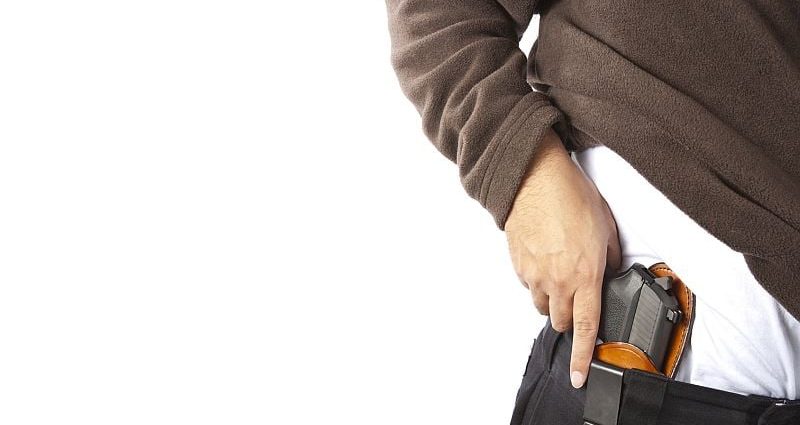TUESDAY, Nov. 7, 2023 (HealthDay News) — Gun violence causes a ripple effect that creates a lasting impact on young people lucky enough to survive being shot, as well as their families, a comprehensive new study finds.
Child and teenaged gunshot survivors carry the physical and emotional scars of violence, and their families suffer even more dramatic aftereffects, the Harvard-associated researchers found.
“The unspeakable tragedy of youth gun violence has overshadowed the massive health crises that occur in the wake of injuries and deaths,” said study author Zirui Song, an associate professor of health care policy and medicine in the Blavatnik Institute at Harvard Medical School in Boston.
Children 19 and younger who survive gun violence experience a 68% increase in psychiatric disorders and a 144% increase in substance use disorders, compared with young people who haven’t been shot, researchers found.
Their moms and dads suffer alongside them, experiencing a 30% increased risk of psychiatric disorders compared with parents whose children haven’t sustained a gunshot injury, results show.
“Gunshot survivors and their families often experience long-lasting, invisible injuries, including psychological and substance use disorders with roots in the shared trauma they have experienced,” Song, who is also a general internist at Massachusetts General Hospital, said in a hospital news release. “It’s important for clinicians to be aware that these families are at an increased risk for these conditions so that they can receive the support and care they need.”
Not surprisingly, family members of young people who died from a firearm injury experienced even more dramatic effects.
Those who lost a child or a sibling to firearm injuries experienced more than twice as many psychiatric disorders after their loss.
Fathers were impacted most, with more than five times as many psychiatric disorders in the months following the fatal shooting of a child, researchers found.
Mothers of children with fatal firearm injuries had a 15-fold increase in subsequent mental health visits, results showed, while fathers exhibited an 87-fold increase in mental health visits.
Song said the new study is the most rigorous to date on the effects of both non-fatal and fatal firearm injuries among young people in the United States. Previous research hasn’t focused specifically on children and gun violence.
Since 2020, firearms have been the leading cause of death among children and teens in the United States, surpassing even car accidents, according to the U.S. Centers for Disease Control and Prevention.
More than 4,500 young people died from firearm injuries last year, and thousands more survived. An estimated 30 million U.S. children live in households with firearms, including nearly 4.6 million in a home where at least one gun is kept loaded and unlocked.
In the study, Song and his colleagues analyzed commercial health insurance claims to compare more than 2,000 child and teenage gunshot survivors to nearly 10,000 young people who did not experience gun injuries.
The team also compared more than 6,200 family members of survivors with nearly 30,000 people who did not have such an experience, and 265 family members of young people who died from a gunshot wound with nearly 1,300 people who did not experience such a loss in their immediate family.
Massive medical bills also typically plague families of gunshot survivors, researchers found.
Health spending on survivors is about 17 times more than it was prior to their injury, with nearly $35,000 more in health costs, on average, in the first year following the gunshot wound, the study authors found.
The researchers found there was a small reduction in routine medical care among the mothers and siblings of firearm victims. This could mean that the family members are neglecting preventive visits and other less urgent care, placing their own health at risk.
The researchers also noted that the siblings of survivors did not have an increase in mental health care visits or diagnoses. While this might be interpreted as siblings not being affected, this could also be because the mental health effects of gun violence on people close to those shot often go unrecognized.
“The siblings of young people who suffer firearm injuries may not be accessing much-needed support in the aftermath of familial trauma,” Song said.
The study was published Nov. 6 in the journal Health Affairs.
More information
The Pew Research Center has more on gun deaths among U.S. children.
SOURCE: Health Affairs, news release, Nov. 6, 2023
Copyright © 2026 HealthDay. All rights reserved.

